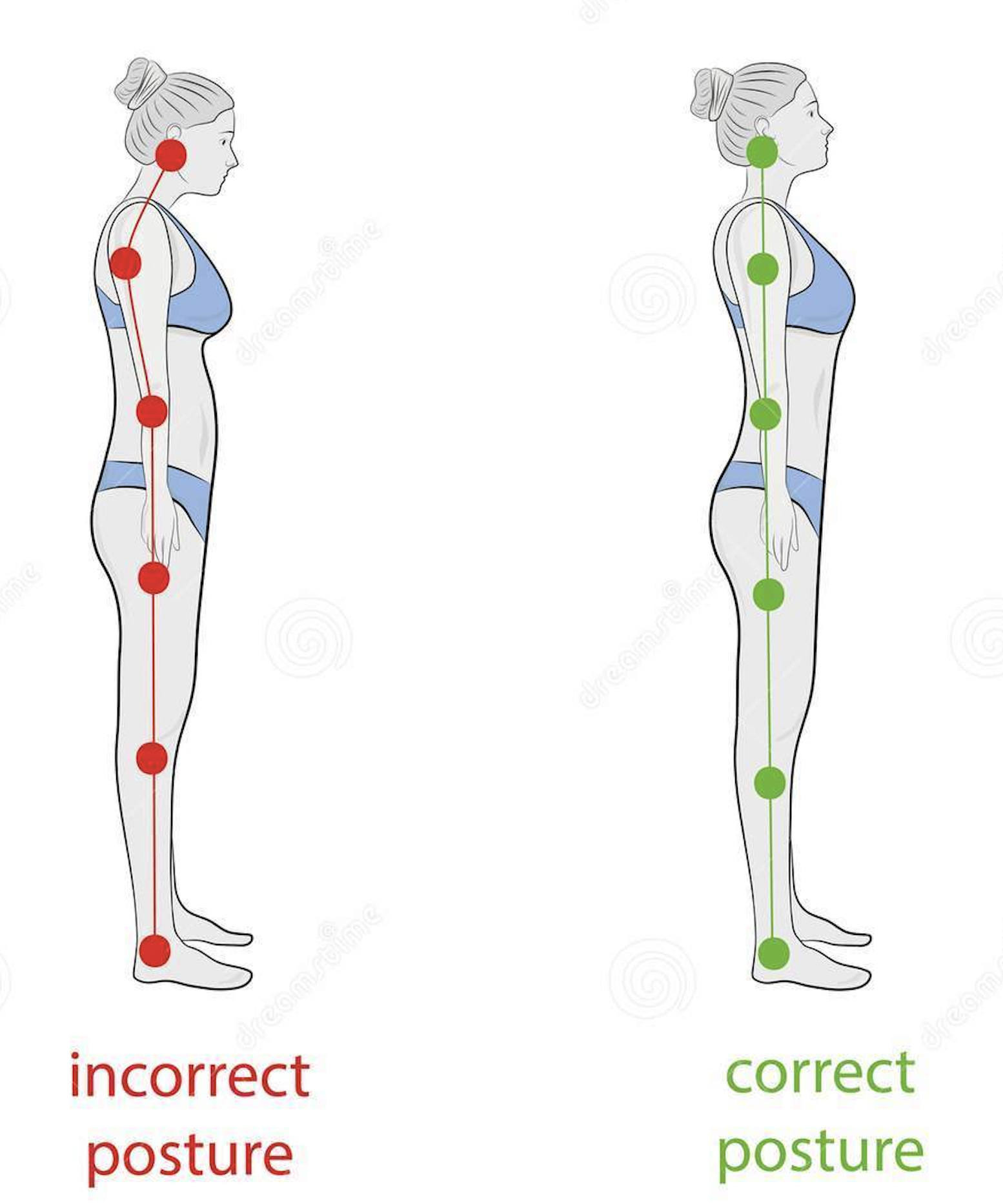A raspy singing voice can feel frustrating, and sometimes scary. Whether your sound is breathy, rough, or unreliable, it doesn’t mean your voice is broken. Most cases of vocal raspiness come from habits like excess air pressure, poor posture, or incomplete cord closure. The good news is: with the right singing techniques, you can free your voice from rasp, regain clarity, and sing with more power and control.
This article focuses on exactly that: how to fix a raspy singing voice with proven methods and exercises. If you’re looking for a broader roadmap of vocal development, start with my Singing Techniques guide. But if raspiness is your main challenge right now, read on.
My history of raspiness
When I started to learn how to sing, I didn't know how to use my voice. It would get tired and even hoarse after only one song.
Also, I would get hoarse while talking for long stretches, talking loud in a pub or at a rock concert, or yelling at my boyfriend (kidding, I had no boyfriend and I don’t usually yell - I just needed a third example).
It was the basic vocal fatigue that many people experience. It was only when I started to take singing lessons that I realized I had been using my voice in the wrong way.
Turns out there were a few bad habits I had - and many people have. If you’re wondering how to fix a raspy voice, you’re not alone. Many singers struggle with hoarseness, but with the right techniques, you can restore vocal clarity.
What bad habits do so many of us have, and what to do about it? Let's get into it:
I teach singing online
Let me remove your rasp.
1st cause of raspy voice: not closing the vocal cords
Like many people, I was trying to not make an effort, by singing (and also speaking!) with a 'calm voice’. This breathy, pretty, intimate voice was not doing the intended job.

If you allow your vocal cords to close only partially, thus creating an airy sound or whispering, a lot of air and energy gets wasted.
The vocal cords get hit by so much air they dry out quickly. Know the feeling of your throat being dry? Not the best feeling, if you ask me. And pretty difficult to talk or sing this way.
The sound you make is at its best when the cords come together and touch fully. Then you can be properly heard. They should be either closed or open, nothing in between. Going halfway will not save energy, rather make you more tired.
If you let a doctor look at the larynx (the voice box) and vocal cords of people with a hoarse voice, you'll see there is a gap between vocal cords at some point. They don’t close properly and this creates a raspy, hoarse voice.
How to Heal Your Vocal Cords and fix your Raspy Voice
There are a few ways to close the vocal cords. Once you've closed them, preserve that feeling as you start to sing.
1. Stop the air in an active way
This creates a little noise that is created by closed vocal cords. I'll show you in this video.
2. Make a squeaky noise
Another way to close your vocal cords effectively is to make a squeaky noise – think that you are holding an inflated balloon at the opening and letting out the tiniest amount of air. It's a squeak!
Sometimes people feel it as an ugly voice. It's the opposite of the stereotypical beautiful voice.
Here is someone who does that magnificently, and from whom we can all learn an important lesson: the character Janice from Friends.
Now here's how it's done: You don't exactly imitate Janice. You imagine her sound while you make your sound. That will be enough to activate the twang (that's the fancy professional term for squeaky voice) and get you that vocal cord closure you need.
Next step: learn that feeling, what's happening in your body when you sing like Janice? That will teach you the mechanism you need, and besides closing the vocal cords - twang has many other advantages - that's why all good singers use it.

"
"A raspy voice isn’t a flaw. It’s a signal. With the right technique, what feels like damage often turns out to be potential waiting to be freed.”
3. Using the glottal stop
The glottal stop is a consonant which is produced by a complete closure of the vocal cords, followed by an audible release of air.
We produce glottal stops all the time in the English language. For example in the word “I”. This starts with a slight “explosion” of air. So that's different from the flow of air as produced with the letter H.
You can practice the glottal stop by repeating a few times the sound eee - eee - eee. When you use the glottal stop, by definition you are closing the vocal cords.
The magic of the Lax Vox method
One of the most powerful tools for healing and strengthening the voice is the Lax Vox Method. This simple yet highly effective technique involves phonating through a straw submerged in water, creating gentle back pressure that relaxes and rehabilitates the vocal folds. It’s widely used by singers, speakers, and even clinical voice therapists to reduce strain, improve vocal closure, and enhance overall vocal efficiency. If your voice feels tired, strained, or raspy, this method can be a game-changer.
My personal experience: a voice lost and found
I know firsthand just how powerful Lax Vox can be. After struggling with severe vocal issues for over six months—where my cords simply wouldn’t close properly—I visited a doctor who assured me my vocal folds were ‘fine, just a little irritated from a cold… and, well, aging.’ That didn’t sit well with me. I’m a voice teacher—I should have known what to do. But nothing seemed to work. So, I picked up my Lax Vox straw, and within just four days, my voice was completely back. Not only that, but I went on to perform a full concert—what I would call my best performance yet—at the aging age of 42. That’s how powerful this is.
Lax Vox tutorial
In this short and sweet tutorial, I’ll guide you through exactly how to use the Lax Vox straw method, including step-by-step exercises to help you restore, strengthen, and protect your voice.
About the author

I’m Linor Oren, founder of SingWell. I have an opera background and in the past I've performed on stage. I've taught hundreds of students how to find their authentic voice. What I’ve learned is that singing isn’t about being “born with it” — it’s about unlocking what’s already inside you with the right tools and guidance. My passion is helping singers at every level grow in confidence, technique, and joy, so they can sing with freedom and expression.
Science break!
Why twang is a vocal superpower




...While proper vocal cord closure is crucial, other factors—like posture—can also make or break your vocal health. Let’s look at another common habit that can cause vocal strain:
2nd cause of a hoarse singing voice: bad posture
If you don't have a healthy body behaviour - it is killing your voice. Please do something about it, or you don't have a chance. There, I said it.
Another thing that troubled me and my voice for many years was my posture. It was a big issue for me: my head was too forward, my shoulders held up too high and my jaw was almost always tight.
It also hurts, a lot. So many people have regular neck and shoulder pain. For me it reached a point where I was usually not aware of the pain anymore, having gotten used to it. But once in a while it would emerge and I would suffer quite a bit.
If you experience even a part of what I am describing here, you should know that neck and shoulder tension put pressure on the trachea (the airway) and significantly limit your control over your voice.
It’s very difficult to be vocally effective that way. A lot of air is wasted by a ‘cracked organ pipe’.
No longer a little mouse...
Maybe you feel it's time to stop shushing your own voice. My weekly 'Belting Mouse' mail shows you how to. It gets you on track with stories and insights from my life as a singer and that of my students.

For 'little mice' who are tired of squeaking and want to start belting...
How to fix raspy voice by correcting your posture
After the years of learning and practicing different body awareness methods - mainly the two mentioned below - I have collected a tool kit of knowledge that I can consult if I find that there is something not quite right with my voice.
1. Do yoga
The first thing to do is yoga, a very practical way to do the right things, settle in the right habits.
2. Use Alexander Technique principles
This is more theoretical: you learn intellectually how your posture should be. It will help you get rid of harmful tension in your body in the long run.
Friedrich Alexander (see photo) stated that our instincts and feelings about the use of our body are inaccurate, and often lead us in the opposite direction of where we want to go.
You can check out here how to use Alexander Technique Exercises for singing.

The founder of Alexander technique: a charismatic actor who developed a new view about the respiratory system and body posture
Case study: how I worked with Dhritigna on her hoarse voice

Dhritigna, college student
Dhritigna: 'i went to like more than 10 doctors for my vocal issues and got completely different diagnoses, even advice to get surgeries. After working with you, the stress and pain have gone, and I can sing with ease and use more power. That's a really huge thing for me: it affects the confidence as well on stage. I'm so grateful for it!'
And get on a call with me
Do-it-yourself?
No time to go to lessons? You can also go on Youtube and find instructors (or use the above Alexander App).
But be careful: if you have a baggage of years of being not physically aware of your posture, you can’t trust your own judgment all that much. So you need an expert to guide you, at least in the beginning, and work with a mirror as much as possible.
With the above in mind, let me give you a short checklist.
Checklist: body posture before singing

Note:
All of the instructions I give you here repeat the same idea: drop, release, direct. Do not try to achieve good posture by putting your head somewhere and keep it there, or pulling, or pushing anything. Use Alexander Technique thinking to achieve your posture.
The underlying principle of all this technique is that your airway stays free. Then your larynx - voice box - is free, and you'll have more control over the air passing the vocal cords, and their closure.
3rd cause of a hoarse singing voice: air pressure
We learned in the 1st bad habit, that you are letting too much air go through the vocal cords. That is a burden on them, they are trying to close! And you are blowing all this air and making the closure harder.
But what if you do close you vocal cords but you still have all this extra air underneath them? That can happen if you take too much air in. Most of my students (and I was no different) have that habit of breathing in like "here we go", lifting the chest and shoulders, and simply inhaling too much, every time before they sing. It's like a preparation breath.
Well, it's not only unnecessary, it's making things more difficult. This is called Subglottal Pressure. Because the air you inhaled wants to come out, it pushes on your vocal cords from below: open the gates! That's a burden on the cords as well. And you can get a hoarse and raspy voice from this, if this is a singing habit of yours.
How to avoid subglottal pressure?
Best way is not to breathe! You don't need that! Breathing is for the weak!
Ok, now seriously, I like working by first of all eliminating muscle tension (align your posture is first step), then letting the breath come in as a reflex. You have a reflex to breathe in - so don't do it intentionally or actively. When your body needs a breath, it will happen.
What that will do is make your inhalations shorter and less heavy. No more subglottal pressure!
But then I won't have enough air to sing!..?
Trust me, if you close your vocal cords and learn some support exercises - you will have enough air. Breath support is what you do with your air, not how much you take. Breath deep, but not a lot, then learn to manage the air as you sing.
Need help with your raspy voice?
Book a free vocal consultation today
What's Next?
Clearing up raspiness is just the beginning. A healthy voice comes from freeing the body, balancing breath, and building reliable technique. Once you’ve tried these exercises, keep strengthening your foundation with my guide Breath & Body for Singing. And if you’re starting from the very beginning and want the full roadmap, head to my How to Learn How to Sing guide.
Enjoy singing,
Linor
Frequently Asked Questions
What causes a raspy singing voice?
Most cases of vocal raspiness come from incomplete vocal cord closure, excess air pressure, or poor posture. These habits prevent efficient sound production and can make your tone breathy, rough, or strained.
How can I fix a raspy singing voice fast?
Begin by practicing vocal cord closure exercises such as the Lax Vox method, glottal stops, and twang training. These help strengthen and align the vocal folds. Combine them with good posture, relaxed breathing, and gentle warm-ups for quick improvement.
Can a raspy voice mean vocal damage?
Not always. Temporary raspiness is often functional rather than structural, meaning it comes from habits rather than injury. If hoarseness lasts more than two weeks or worsens with use, consult a voice specialist to rule out medical causes.


Great learning page, Linor. Thank you for sharing your expertise and talent. (Irvine, CA, USA)
That’s so nice to hear!
Im having trouble with a raspy voice is it that my body not in line propetly or is it my vocal cords not closing
Both those things can cause a raspy voice, but I cannot tell you which one it is in your case, since I have never heard you or saw you. You can go get your vocal cords check, if you want to be rest assured that it’s not a medical issue with the vocal cords (if you get a referral from your house doctor, this should be covered by insurance, maybe also check that where you are from).
A little “home test” can be: align your posture, then see if your voice is still raspy. If so, it’s something with the vocal cords. Then move on to vocal cord closure exercises (like the ones I referred to in this article). I give some tips on algining posture in my yoga article:
https://singwell.eu/singing-pose-yoga/
I have this same problem, it’s been disturbing for years and it’s ruining my career..I really do need help but I’m not in the u.s
Hi Peter, sorry that you are suffering. I’m in the Netherlands, not the US, plus I also teach online. What kind of help do you think you need? Voice lessons could help but only if everything is healthy in the larynx area, otherwise you beed a doctor.
Feel free to use the envelope/chat in the bottom corner to write to me personally